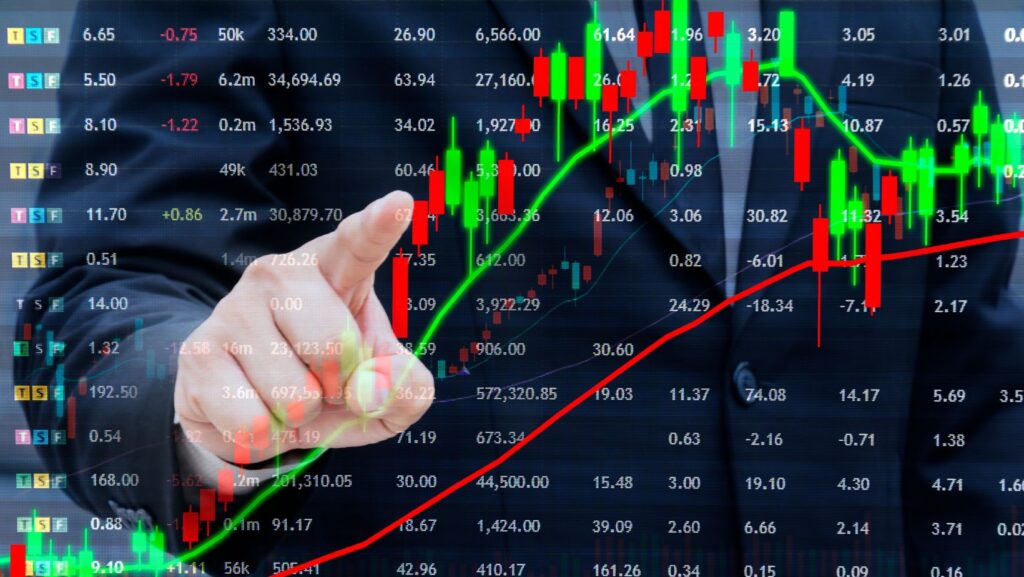
Searching for a forex broker today can feel overwhelming. Dozens of platforms advertise tight spreads, advanced tools, and special promotions. At first glance, having more choices appears to be an advantage. In practice, research in behavioural finance shows that too many options often create confusion. Instead of helping traders make better decisions, an excess of brokers can slow them down or lead to poor matches.
For newcomers, this is more than a theory. The broker you select affects execution speed, platform stability, and even the safety of your funds. One way to reduce the noise is to focus on trusted comparisons, such as TradingGuide’s awards for the best forex broker UK. Lists like these provide traders a manageable starting point. The bigger question, however, is how choice overload influences trading performance.
Why More Isn’t Always Better
Psychologists often describe this as the paradox of choice. When the number of options grows too large, satisfaction tends to drop instead of rising. Shoppers faced with dozens of similar products sometimes leave without buying anything. In forex, the cost of hesitation or poor selection can be much higher.
Brokers compete on many points:
- Spreads and commissions
- Trading platforms and execution speed
- Regulation and investor protection
- Range of currency pairs and CFDs
- Research tools and education
Each factor matters, but too much information can overwhelm new traders. Many are drawn to eye-catching offers like deposit bonuses or ultra-tight spreads, while overlooking essentials such as withdrawal security and regulatory oversight. Looking at detailed broker platform overviews helps clarify how brokers actually perform. Resources like these cut through the noise and highlight the features that have the biggest impact on real trading outcomes.
Decision Fatigue and Its Impact on Trading
Choice overload often turns into decision fatigue, a steady decline in judgment that occurs after making too many decisions. In trading, this can be costly.
- Slower execution: When unsure about their broker, traders may hesitate before entering a position. In fast markets, hesitation can mean missed opportunities or worse entry prices.
- Over-researching: Hours spent comparing platforms reduce the time available for testing strategies or reviewing market data.
- Regret bias: After opening an account, the nagging thought that another broker might have been better can drain confidence and increase stress.

These outcomes affect more than just the broker decision. They influence discipline, focus, and ultimately the quality of every trade. Traders dealing with fatigue are more likely to abandon their plan, take impulsive positions, or mismanage risk. Over time, this can lead to inconsistent results and lower returns.
The Risk of Over-Optimisation
Even experienced traders face the same trap. With so many brokers to compare, some try to build the “perfect” setup: the tightest spreads, the fastest execution, the widest asset list. In practice, this pursuit can do more harm than good.
- Markets change: A broker that looks competitive today may fall behind tomorrow if spreads widen or technology updates slow down.
- Needs evolve: A beginner may start out valuing strong education and customer support, then later prioritise advanced order types, liquidity depth, or API access.
- Switching costs: Constantly moving from one broker to another disrupts trading consistency and increases the learning curve each time.
The better approach is to aim for “good enough.” A broker with solid regulation, reliable execution, transparent pricing, and tools that match your trading style will usually serve you better than endlessly searching for perfection. What matters most is the trader’s own system and discipline. The broker is a tool, not the strategy itself.
How to Narrow the Field
Instead of comparing every broker on the market, it helps to follow a clear process. A step-by-step approach makes the search easier and keeps the focus on essentials.
1. Start with Regulation
Begin by checking regulations. Brokers licensed by the FCA in the UK, CySEC in Europe, or ASIC in Australia usually meet higher standards of client protection and transparency. This filter alone removes a large number of risky operators.
2. Match to Trading Style
Your trading style should guide the choice. Scalpers tend to prioritise fast execution and low spreads. Swing traders may look more closely at swap rates or the quality of research tools. Being clear about your needs prevents distraction from irrelevant features.
3. Consider Infrastructure
Execution quality depends on more than spreads. Latency, platform stability, and mobile access can all influence results. Traders who use automation or trade during volatile sessions often need objective data instead of marketing claims. A detailed guide on measuring broker latency can help you test server speed and compare execution performance across different platforms.
4. Look for Independent Reviews
Finally, study independent reviews and industry awards. These highlight brokers with consistent strengths and reveal recurring issues that may not be obvious at first glance.
By filtering in this order, the long list of potential brokers becomes shorter and easier to work with, leaving traders more confident in their final choice.
When More Choice Helps
Variety is not always a drawback. For traders with clear priorities, a wide market can be an advantage. If you already know you want a broker with raw spreads and servers in New York, a larger pool increases the chance of finding the right fit.
The issue is not the number of brokers. It is whether the trader has a method to evaluate them. Without structure, too many options create noise. With structure, those same options turn into opportunity.
The Bottom Line
Choice overload in forex is real. It can lead to hesitation, fatigue, and second-guessing. But the core problem is not the size of the market. It’sis the lack of a clear process for making decisions.
The way forward is focus. Define your trading style, check regulations, and choose stability over unnecessary extras. Resist the pull to compare every small detail or chase perfection. When you rely on curated shortlists and structured criteria, the decision becomes simpler and more effective.
In trading, fewer well-chosen options often produce better outcomes. The goal is not to find a flawless broker. Select one that supports your strategy and lets you focus on the market itself.







